Meet Christopher Oates (he/him)
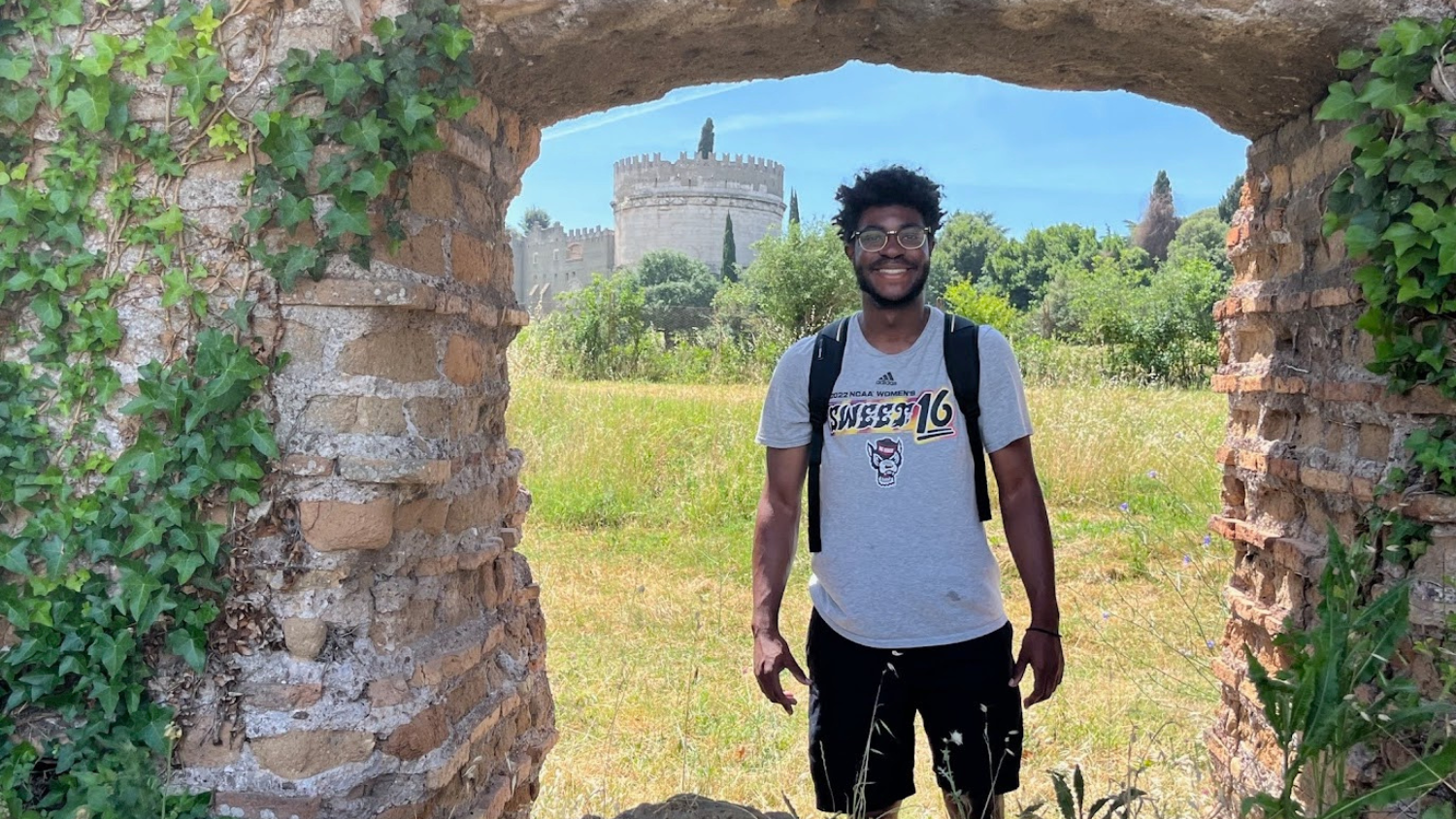
Program and Location:
Summer, Engineering in Roman Times; Rome, Naples, Pompeii
Major/Minor:
Environmental Sciences and Biological & Agricultural Engineering Technology with Agricultural Business Management minor
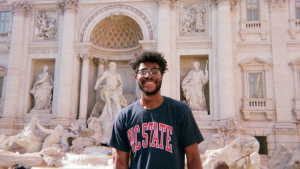
Why did you choose to study abroad?
I chose to study abroad because I wanted to gain greater cultural awareness of the world around me while learning more about the field of science and engineering that I wish to go into after graduation. Coming from such a non-diverse community, I greatly value cultural diversity in my life. Subsurface diversity can be defined as the differences in people’s personalities, experiences, and cultural practices. This kind of diversity can be observed through conversations, interactions, and attentive listening; those qualities aren’t immediately apparent. I felt this type of diversity is what I could gain from Italy. The trip and class focused on mythology and culture just as heavily as they focused on engineering practices and applications. The ancient Romans were incredibly advanced. They had many cultural practices and traditions that survived long after the fall of the Roman Empire. Roman rule shaped the architecture, religion, education, infrastructure, and language of the Western world; that was all very interesting to me.
What did you learn about yourself?
I wanted to get out of my comfort zone and explore the world. Being from a small town can really limit your worldview. Being exposed to other cultures and people with different ideas, social norms, and beliefs is very beneficial in facilitating growth in one’s own mindset and moral compass. I don’t think a person gains much from not pushing their own boundaries, limits, and preconceived notions. If you live your whole life thinking only the way you were raised is the right way, then I don’t think you have truly lived life. While in Rome, I learned that I had been taught to accept certain practices and customs as being the right simply because they are the norm. Learning more about Italian culture and customs was very eye-opening. Italians value social events and quality time more than the typical American does. I found myself taking time to soak in my surroundings and being present for the moment rather than constantly being focused on the next task or activity. I have found that mentality to be increasingly useful as the Fall semester has ramped up. Enjoying the present is one of the most important things I learned from my time abroad.
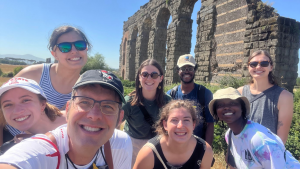
What was one of your favorite parts of your program?
Touring the Aqueduct Park in Rome was one of my favorite parts of my time in Rome. It is insane to think about the fact that such large portions of the aqueducts are still standing. Delivering clean water efficiently and reliably is still a problem that plagues the modern world. The fact that the Romans were able to solve these problems so long ago really makes you admire the Romans and their technological prowess. It is also almost unbelievable to think about how the aqueducts were so uniform over such long distances. The longest aqueducts were 90 kilometers long. They had consistent even slopes along the entire distance; Roman engineers were seriously impressive. Learning engineering techniques from history’s greatest engineers and mathematicians will benefit me in both my academic and professional careers. I’ll bring the knowledge from Italy into the classroom; my current degrees focus heavily on water resources. The Romans were experts in water engineering and ensuring that their citizens were all supplied with a more than adequate amount of clean water. Water quality and water availability are issues that I want to tackle in graduate school and in my subsequent professional career. If the Romans were able to solve these problems, then we should be able to.
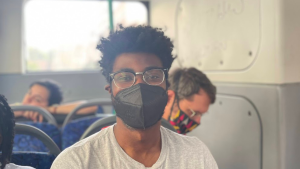
Were you surprised by anything during your time abroad?
One of the most interesting aspects of Italian cities is how well ancient cultural sites are so well preserved and integrated with modern buildings and streets. I think that there is a lot we can learn from this. I feel that, especially in this day and age, remembering and learning from the past is essential to shaping a fair and just future. Mistakes from the past can easily be prevented from happening again.
What was your experience with navigating COVID-19 abroad?
I learned that is very important to be well read up on all of the travel restrictions for areas that you will be visiting. For example, the US had restrictions that were more strict than the ones that were in place in Italy. Staying aware of the fact that COVID-19 is still out there and people are still getting sick is important. We all did our best to protect ourselves when we were in crowded areas like trains and buses. We were still able to have fun and enjoy ourselves. With most restrictions being relaxed, traveling abroad should be even more worry-free now.
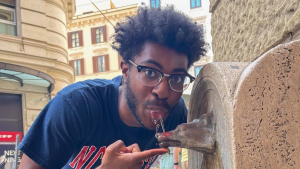
What advice do you have to future study abroad students?
My advice to anyone who is contemplating whether or not they should study abroad is to do it! Right now, during your undergraduate years, is the best time to travel. It becomes increasingly more difficult to travel as you get older and begin to take on more responsibilities. There is no time like the present; you never know what will come about in the future and make traveling difficult or impossible (COVID-19 for example). Going to Rome was my first time leaving the United States. I think it was a much more manageable experience since it was structured and with people that I knew. I do not think I would have ever gone to Rome, let alone leave the country anytime soon had it not been for studying abroad.
Would you do it again?
Yes, 100%!